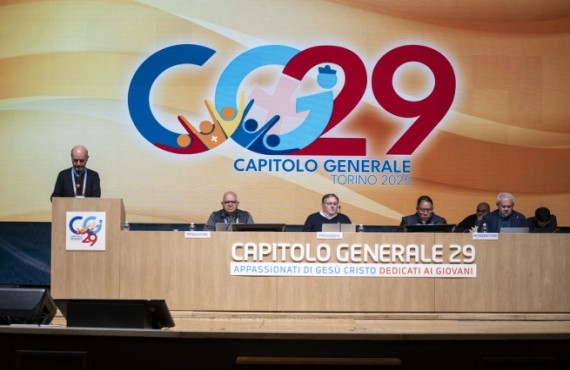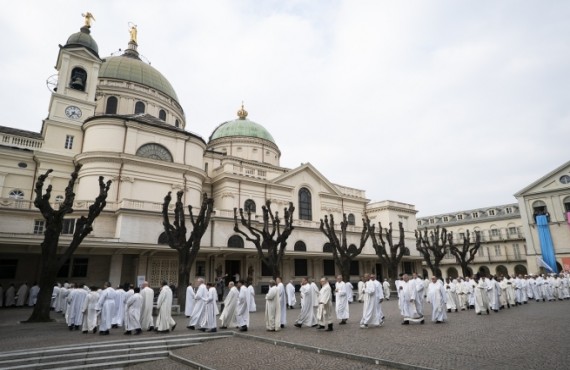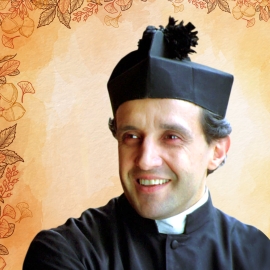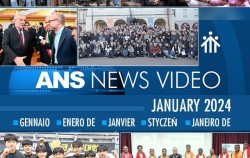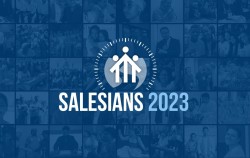WIADOMOŚCI
(ANS – Makuyu) – Od pewnego czasu Ośrodek kształcenia technicznego i zawodowego “Don Bosco” w Makuyu, w Kenii, wymagał gruntownego remontu w celu poprawy warunków nauki uczniów. Teraz, dzięki funduszom otrzymanym z “Salesian Missions” w New Rochelle, udało się przeprowadzić niezbędną modernizację.
(ANS – Brasilia) – Kierunek medyczny Salezjańskiego Uniwersytetu “UniSALESIANO” w Brazylii, z siedzibą w Araçatuba, osiągnął wielki suksces: znalazł się wśród sześciu najlepszych kierunków medycznych uczelni brazylijskich, które zostały najwyżej ocenione, otrzymując “5” w ocenie Ministerstwa Edukacji, które w tej ocenie użyło narzędzia, jakim jest “Conceito Preliminar do Curso - CPC” (Wstępna koncepcja kursu). Spośród 305 kierunków medycznych, które były przedmiotem oceny w 2023 r., kiedy to miała miejsce ostatnia ocena wystawiona przez MEC, salezjańska uczelnia “UniSALESIANO” wyróżniła się wysokim wskaźnikiem wydajności i dzieliło ją zaledwie 0,6 punktu od najlepszej uczelni w kraju.
(ANS – Rzym) – Dnia 16 kwietnia 2006 r. ks. Valentín de Pablo Masa, salezjanin, misjonarz i radca regionu Afryka-Madagaskar, odszedł do Domu Ojca. W rocznicę jego “narodzin dla Nieba”, ks. Alphonse Owoudou, jego następca na stanowisku radcy regionu Afryka-Madagaskar (2020-2025) i wybrany przez KG29 na pierwszego Radcę nowego Regionu Afryki Środkowej i Zachodniej, serdecznie go wspomina.
GALERIA ZDJĘĆ
WYWIADY
-
Włochy – KG29, ks. Attard: “Słuchając młodych świata, metoda Księdza Bosko jest wciąż aktualna”
(ANS – Turyn) – W długiej posłudze ks. Fabio Attarda, nowego Przełożonego Generalnego, salezjanina od 45 lat i kapłana od 1987 r., zarówno duszpasterskiej, jak i o charakterze naukowym, kluczowe miejsce zajmuje ukochanie młodzieży. Po wyjeździe w 1991 r. z Tunezji, gdzie przebywał na placówce salezjańskiej (i nauczył się arabskiego), powrócił na Maltę jako dyrektor szkoły salezjańskiej i kierownik oratorium.
OD REDAKCJI
-
RMG – Ksiądz Bosko: Fascynujący Święty
(ANS – Rzym) - Ksiądz Bosko jest być może najbardziej niezwykłym i fascynującym świętym, jakiego historia kiedykolwiek wydała. Skromna praca, którą rozpoczął dla dobra swoich biednych i porzuconych chłopców we Włoszech, przyniosła zdumiewające rezultaty; dziś w 138 krajach pracuje niemal 14 000 Salezjanów, a ponad 200 000 członków należy do 32 grup Rodziny Salezjańskiej na świecie, dzieląc się charyzmatem Księdza Bosko i docierając do potrzebujących młodych ludzi.
WYDARZENIA
-
Malta – Twarzą w twarz z Człowiekiem z Całunu: w “Teatru Salesjan” spotkanie, które wykracza poza czas
(ANS – Sliema) – Od niedzieli 13 do piątku 18 kwietnia, w “Teatru Salesjan” w Sliemie na Malcie ma miejsce wydarzenie “Face to Face: Encountering the Man of the Shroud” (Twarzą w twarz: Spotkanie z Człowiekiem z Całunu). Zostało ono zaplanowane właśnie na Wielki Tydzień, stanowiąc szczególną okazję do kontemplacji naturalnej wielkości repliki Całunu Turyńskiego, głęboko poruszającego obrazu, który od wieków budzi wiarę, podziw, stanowiąc niezwykłą tajemnicę. Jest to coś więcej niż wystawa. To pielgrzymka serca.
Pogłębienie tematu
-
Peru – Kuyuntsa, ukochana wioska ks. Bolli
(ANS – Kuyuntsa) – Na kilka tygodni przed zakończeniem diecezjalnej fazy procesu beatyfikacyjnego i kanonizacyjnego sługi Bożego ks. Luisa (Luigi) Bolli, salezjanina, nasza uwaga kieruje się na wioskę, którą tak bardzo ukochał: Kuyuntsa.
PRZESŁANIA PRZEŁOŻONEGO GENERALNEGO
-
Z Księdzem Bosko na zawsze
PRZESŁANIE WIKARIUSZA PRZEŁOŻONEGO GENERALNEGO, Ks. Stefano Martoglio
Nie jest obojętne to, w jakim miejscu odbywa się Kapituła Generalna. Z pewnością na Valdocco, w “kolebce charyzmatu”, mamy okazję na nowo odkryć genezę naszej historii i na nowo odkryć oryginalność, która stanowi sedno naszej tożsamości jako osób konsekrowanych i apostołów ludzi młodych.


















